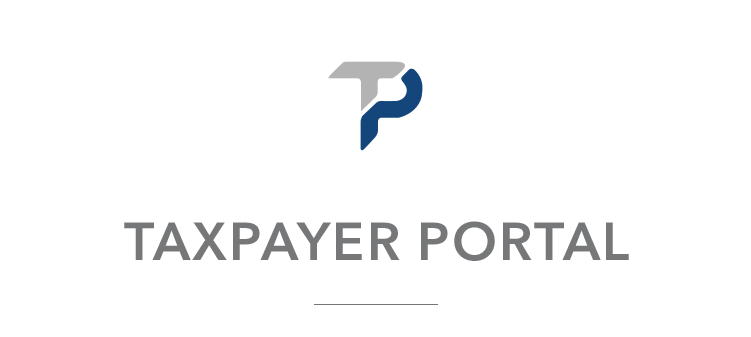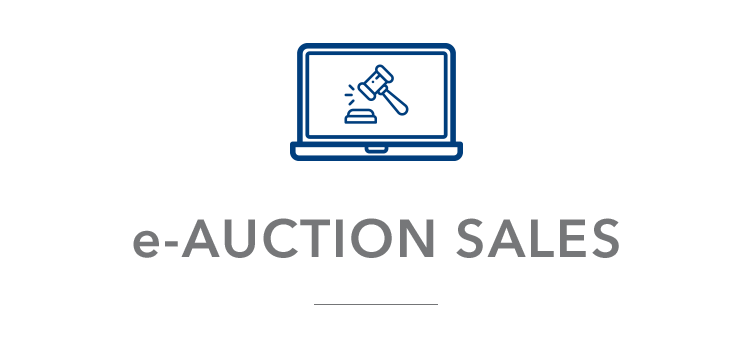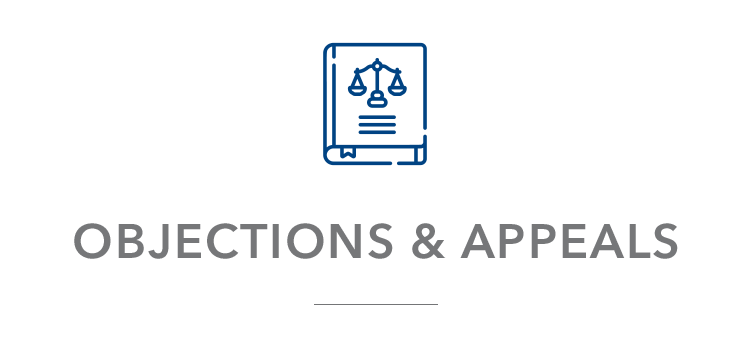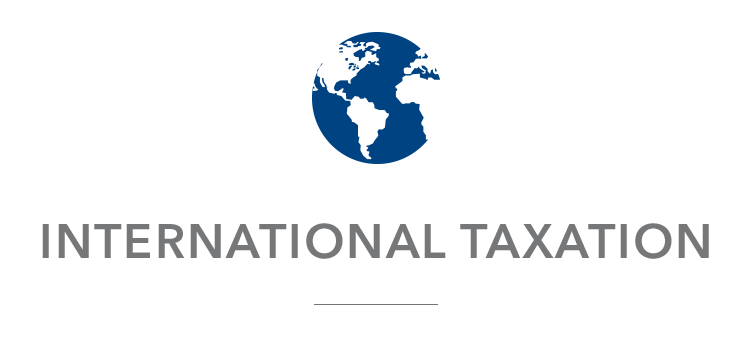Disclaimer: The information provided is for informational purposes only. In case of discrepancy between the information provided and the Customs laws, the Customs laws shall take precedence.
Returning Citizen - Motor Vehicles
A returning citizen of Mauritius who is coming back to settle in Mauritius may be granted excise duty concession on one motor vehicle or motorcycle, provided he satisfies the provisions of Item 3 of Sub-Part A of Part IA of the First Schedule to the Excise Act.
Click "here" to read to the provisions of Item 3 of Sub-Part A of Part IA of the First Schedule to the Excise Act.
-
What is the rate of excise duty payable when this concession is granted?
-
How to remove the Customs duty liability "lien" on the motor vehicle?
-
Who is a returning citizen of Mauritius?
A returning citizen of Mauritius is any Mauritian whether or not born in Mauritius who is coming back to settle in Mauritius. He should be the holder of a valid Mauritian passport.
-
Who can apply for this concession?
-
Any returning citizen of Mauritius who is coming back to settle in Mauritius and:
-
during the 10 years preceding the date of his return to Mauritius, he has stayed or worked in Mauritius for not more than 3 years in the aggregate; or
-
he has been residing outside Mauritius for a period of at least 5 years preceding the date of his return to Mauritius and he has stayed in Mauritius for not more than 150 days in the aggregate during the period of 5 years, and he has been working outside Mauritius for the said period; or
-
he has been residing outside Mauritius for a period of at least 5 years preceding the date of his return to Mauritius and he has stayed in Mauritius for not more than 150 days in the aggregate during the period of 5 years, and he has ceased to work on having reached retirement age; or
-
he has been temporarily residing and working in Mauritius and decides to remain permanently in Mauritius within 3 years from the date of his temporary return and satisfies the conditions at paragraphs 2(a)(i) or 2(a)(ii) or 2(a)(iii) above.
-
-
Where a returning citizen of Mauritius has been granted concession on a motor vehicle or motor cycle, no other excise duty concession under this item shall be granted to his spouse or to any of his dependent children.
-
Where a returning citizen of Mauritius has been granted excise duty concession on a motor car under the Mauritian Diaspora Scheme, he shall not be granted another excise duty concession on another motor vehicle or motorcycle under this item.
Note: Every holder of a Mauritian Diaspora Certificate issued under regulation 9 of the Economic Development Board (Mauritian Diaspora Scheme) Regulations 2023 shall be exempt from the payment of excise duty under the Excise Act up to a maximum of 2 million rupees on a motor car cleared from a bonded warehouse or imported within a period of 180 days from the date of issue of the Certificate, provided that the member has not claimed excise duty concession as a returning citizen of Mauritius under item 3 of Part IA of the First Schedule to the Excise Act. For more information, please access the EDB website on https://edbmauritius.org/.
-
-
Can an applicant import his car?
-
An applicant can import a motor vehicle or motorcycle, provided the motor vehicle or motorcycle purchased outside Mauritius is shipped to Mauritius in the name of the applicant within 180 days of the date of his return to Mauritius.
-
Where the motor vehicle or motorcycle is registered in the name of a spouse who is not a citizen of Mauritius, the concession may be granted to the returning citizen of Mauritius who is coming to settle in Mauritius, provided the spouse settles in Mauritius together with him in Mauritius.
-
Where a returning citizen has not imported a motor vehicle or motorcycle, he may benefit from the concession on a motor vehicle or motorcycle removed from a bonded warehouse in Mauritius, provided that the motor vehicle or motorcycle is cleared within 180 days of the date of his return.
-
-
What is the rate of excise duty payable when this concession is granted?
Any person eligible under this concession shall pay excise duty at the rate of 15% on the first Rs 1.5 million of the value of the motor vehicle or motorcycle and the normal rate of excise duty specified in Part 1 of the First Schedule to the Excise Act shall apply on the difference, plus VAT at 15%.
-
How the value of the motor vehicle is assessed?
For second-hand vehicles, the value of the motor vehicle or motorcycle is assessed in accordance with the Excise (Valuation of motor vehicles) Regulations 2003. Click “here” for assessment of value for second hand motor vehicles.
-
How to apply for the concession?
A returning citizen of Mauritius who is coming back to settle in Mauritius claiming this concession has to make a written declaration by filling in the form MRA/CUS/SO/VRC/Form 2, which may be downloaded from https://www.mra.mu/download/FormReturningCitizenNew.pdf.
-
What documents should be submitted to Customs?
-
A Passport (Customs) Memo showing the applicant’s travel history. This document may be obtained from the Passport & Immigration Office on https://passport.govmu.org/passport/?page_id=877.
-
A valid Mauritian passport, birth certificate and marriage/divorce certificate, as applicable.
-
For an applicant who has been residing outside Mauritius for a period of at least 5 years preceding the date of his return to Mauritius, and he has been working outside Mauritius for the said period:
-
Original salary receipts/payslips/bank statements for the said period;
-
Certificate of Employment issued by the employer.
-
-
For an applicant who has been residing outside Mauritius for a period of at least 5 years preceding the date of his return to Mauritius, and he has cease to work on having on having reached retirement age:
-
An official document certifying the age of retirement applicable in the country he has been working abroad;
-
Original salary receipts/payslips/bank statements, for which, he has been working during the said period;
-
An attestation from the then employer certifying that he has ceased to work on having reached retirement age.
-
-
For the motor vehicle or motorcycle purchased abroad:
-
Registration Certificate in the country of purchase;
-
Invoice.
-
-
-
What are the obligations of the beneficiary?
-
The motor vehicle or motorcycle shall be subject to a excise duty and taxes liability “lien” for a period of 4 years.
-
He shall not absent himself from Mauritius for more than 183 days in aggregate during each year in the 4-year period, from the date the concession was granted.
-
He shall notify Customs if he intends to sell, transfer or use the vehicle other than in respect of which the exemption was granted.
-
Where the motor vehicle or motorcycle is sold or transferred before the expiry of the 4-year period and there has been no breach of any condition attached to the concession, he shall pay the proportionate excise duty and taxes of the amount which was exempted by reference to any time remaining due out of the 4-year period.
-
When the motor vehicle or motorcycle has been sold or transferred and he fails to notify Customs or when the motor vehicle or motorcycle is put to any use other than that in respect of which the exemption was granted, he shall pay the total amount of excise duty and taxes which was exempted together with a penalty and interest.
-
Where the vehicle is damaged in an accident and is a total loss before the expiry of the 4-year period, he shall pay proportionate excise duty and taxes on the amount exempted by reference to any time remaining due out of the 4-year period.
-
When the motor vehicle or motorcycle is damaged in an accident within 2 years from the date of clearance, and is a total loss, he may grant concession for a replacement motor vehicle or motorcycle on only one occasion.
-
Where a beneficiary dies within the 4-years period, no excise duty and taxes representing the concession granted shall be payable on the motor vehicle or motorcycle, provided that the motor vehicle or motorcycle is not sold, pledged or disposed within that 4-years period.
-
-
How to remove the Customs duty liability "lien" on the motor vehicle?
-
Excise duty and VAT liability "lien" has to be removed by Customs after the 4-year period has lapsed.
-
A request for removal of “lien” must be made at the Motor Vehicle Corridor Unit by phone on 202 0500 (Ext: 7079 / 7088) or by email on This email address is being protected from spambots. You need JavaScript enabled to view it., together with the Certificate of Registration 'Horsepower' of the motor vehicle or motorcycle, NIC and contact details of beneficiary. The removal process lasts for at least one week.
-
For further information and assistance you may contact the Motor Vehicle Corridor (MVC) by phone on +230 202 0500 or by email on This email address is being protected from spambots. You need JavaScript enabled to view it..
Clearance Procedures
Documents that need to be submitted to Customs for the clearance of personal and household effects:
- Passport
- Passport Memo (collected at the Passport and Immigration Office)
- Inventory of what is in the shipment
- Shipping arrival papers
Removal companies, airlines and shipping companies will usually provide arrival papers around the time your effects are imported. Some freight forwarders / Customs brokers or removal companies will also assist you with Customs formalities (Bill of Entry).
In addition to these documents, clearance from relevant authorities is needed for goods that require permits. These are listed below:
- Agricultural products (fresh flowers, items containing soil remains, seeds etc.) - clearance from the Ministry of Agriculture needed.
- Pharmaceutical Products, foodstuffs – clearance from the Ministry of Health.
- Arms and Ammunition and weapons – clearance from the Police
Refund of Duty and VAT or collection of goods on purchases made in “VAT free supply shops and Deferred Duty and Tax Scheme shops”
Prior to departure:
A visitor may claim refund of duty and taxes at the Mauritius Chamber of Commerce and Industry (MCCI) counter on goods purchased on payment of duty and taxes upon presentation to Customs of his goods, DF5 Voucher / VAT paid invoice / passport and travel ticket.
A visitor or a departing citizen of Mauritius may collect his goods purchased free of duty and taxes at the MCCI counter on presentation of his DF4 Voucher / VAT free invoice / passport and travel ticket. Customs may require any passenger to produce the goods for examination.
A departing citizen of Mauritius may also purchase goods free of duty, excise duty and taxes. Such goods will be delivered to departing citizen at the MCCI Counter at the time of his departure.
Allowances granted on household and personal effects
What are household and personal effects?
Household and personal effects include items such as furniture, picture, bedding, linen, cutlery, crockery, silver and plated ware, sewing machine, radio set, television set, musical instrument, refrigerator, cooking stove, heater, perambulator and similar articles for domestic use.
What is the rate of duty and taxes payable?
Household and personal effects are not liable to any duty or tax when cleared by persons eligible to this exemption.
Who is eligible to this exemption?
Three categories of persons are eligible to this exemption as follows:
-
Any passenger who on his first arrival satisfies the Director General that he is taking up permanent residence in Mauritius.
-
A citizen of Mauritius who is returning to Mauritius after residence abroad for a period of at least one year.
-
Any passenger who is not a citizen of Mauritius and is coming to work in Mauritius. (Occupation permit/work permit issued by the competent authority needs to be produced)
Conditions for eligibilty
-
The household and personal effects should have been purchased abroad and are not intended for sale or transfer.
-
The household effects are imported within 6 months of the arrival of the passenger. or any such period where the Director-General is satisfied that those effects were not imported within 6 months of his arrival due to any just or reasonable cause, including political or social unrest in the foreign country of residence.
-
Where a person has been granted exemption on household and personal effects and, at any time before the expiry of 4 years from the date of the exemption, he intends to sell, transfer, use or apply the goods in any way other than that in respect of which the exemption was granted, he shall give written notice of his intent to the Director-General.
NB: To facilitate the clearance of the personal effects it is advisable that every passenger submits a detailed list of the effects being imported in the form of a packing list. Otherwise a provisional entry will have to be submitted in order to list all the items imported. This exercise is time consuming.
Obligations of the beneficiary of the exemption
Every person who has benefited from this exemption shall:
-
The importer of the goods or any person who intends to sell, transfer, use or apply the goods, other than in respect of which the exemption was granted, or any person who may acquire or come into possession of the goods as a result of the sale or transfer, use or application, shall forthwith notify the Director-General of the fact, with such particulars as the Director-General may require, pay the duty and taxes.
-
Where any goods are sold or transferred before the expiry of the 4-year period referred without breach of the notification referred to (1) above or of any of the other conditions attached to the exemption, the duty and taxes shall be computed proportionately by reference to any time remaining due out of the 4-year period, as the case may be.
-
Where any goods
-
are sold or transferred and there has been a breach of the notification referred to in (1) above or of any of the other conditions attached to the exemption; or
-
put to any use or applied to any object, other than that in respect of which the exemption was granted, the total amount of duty and taxes which would have been payable, but for the exemption, shall become due and payable, together with a penalty not exceeding 50 % of the amount due and interest at the rate of 0.5 % per month or part of the month on the amount due from the time the goods have been exempted to the date of payment.
-
NB: Where a beneficiary dies within a period of 4 years of the date of the importation of the personal and household effects, no Customs duty and Value Added Tax representing the exemption granted shall be payable on those effects, provided those effects are not sold, pledged or disposed within that period.
Goods into other countries
The MRA-Customs is unable to provide information about the Customs, agriculture, health requirements and so on that apply in other countries.
For information about Customs requirements when you take goods into other countries:
- ask your travel agent, or
- contact the appropriate consulate or embassy representative – the Ministry of Foreign Affairs can provide contact details.
You can also go through the customs websites of other countries so as to know about their regulations.























